Table of Contents
15 minute read
Thanks to generous donor support, ACE’s Recommended Charity Fund awarded $1,837,466 to our 2024 Recommended Charities this February. This was our second-largest disbursement ever! Those organizations shared how they used their grants to make a positive impact on animals, and we’re thrilled to share their achievements with you.
Donating to our Recommended Charity Fund supports high-impact charities that reduce the suffering of some of the world’s most neglected animals. Much of the inspiring work highlighted below depends on grants from this fund. Thank you for making these achievements for farmed and wild animals possible!
Recommended Charity Updates
Discover what ACE’s Recommended Charities have accomplished for animals in the first half of 2025 with support from the Recommended Charity Fund.
Aquatic Life Institute
$134,447 grant
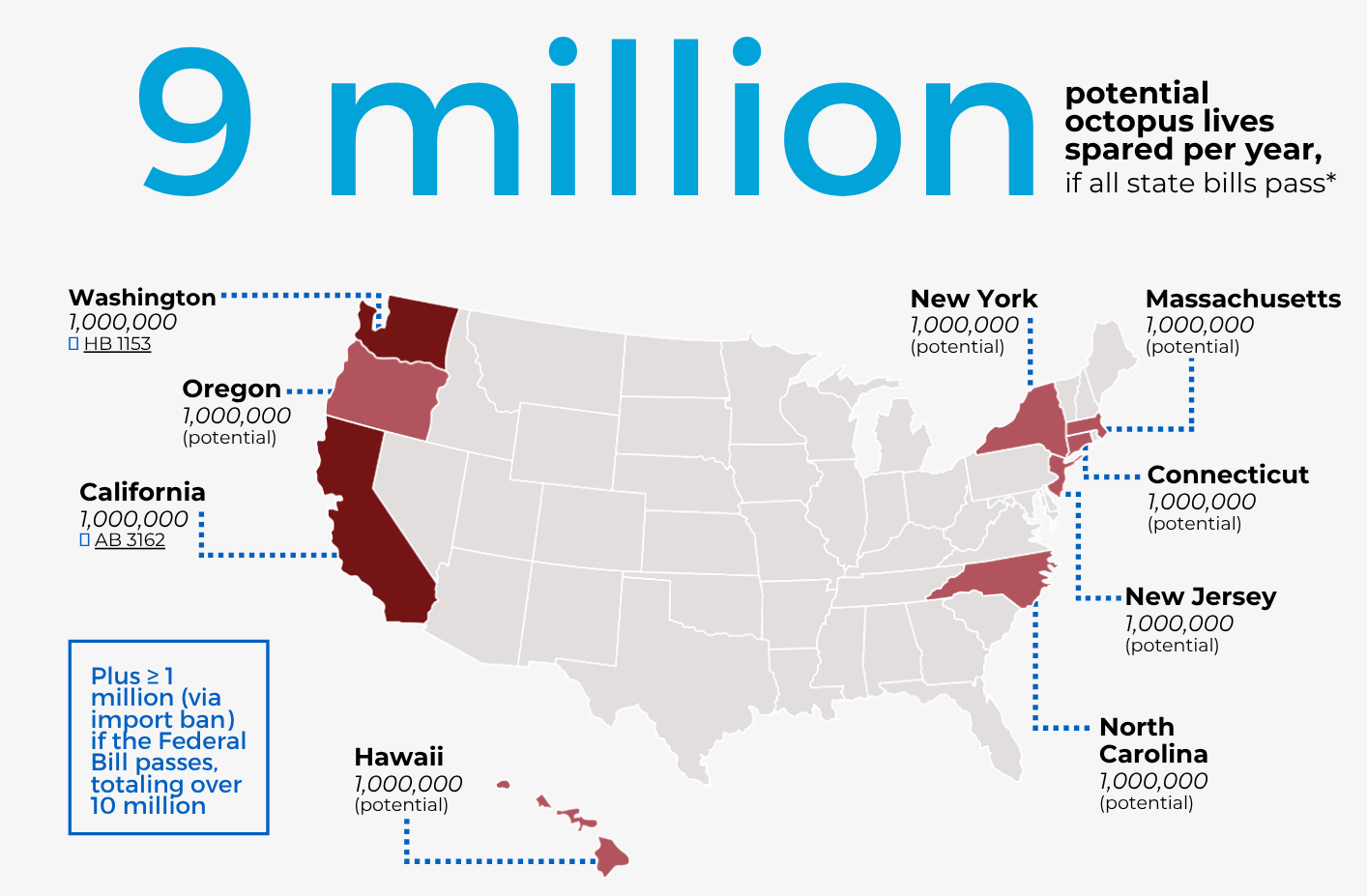
Aquatic Life Institute (ALI) has utilized donor support to transform food systems and protect aquatic animals, guided by its impact measurement framework: Recognition, Protection, and Prioritization.
- Recognition – Is aquatic animal welfare seen as relevant, legitimate, and urgent?
- ALI published a peer-reviewed paper on health and welfare in Fishes, ranking in the top 10% of research tracked by Altmetric, with coverage in nine media outlets reaching over 736,000 readers.
- ALI delivered an ESG session to the FAIRR Initiative, expanding investor awareness of aquatic animals.
- ALI released the fourth Marine Capture Fisheries report, recognized by UNESCO’s Blue Thread initiative.
- Protection – Are commitments and regulations being adopted to protect aquatic animals?
- ALI played a key role in revising the ASC Farm Standard to improve welfare protections for an estimated 45.3 billion animals annually.
- ALI coordinated over 175 organizations through the Aquatic Animal Alliance to advocate for stronger certification standards and advised Lever Foundation on enhancing its corporate seafood welfare policy.
- ALI supported reforms at Hilton Foods and Co-op, securing commitments to stunning, eyestalk ablation bans, and environmental enrichment.
- ALI advanced the Ban Octopus Farming Campaign, contributing to two U.S. state bans, seven active bills, increased international pressure, and the reintroduction of a federal ban on octopus farming.
- Prioritization – Is aquatic animal welfare embedded in long-term decision-making?
ALI has embedded welfare into research, certification, corporate policy, investment, and governance structures. The organization also strengthened internal capacity by hiring three new team members and transitioning one staff member to a development role. Read the 2025 Half Year Report here.
Çiftlik Hayvanlarını Koruma Derneği
$152,374 grant
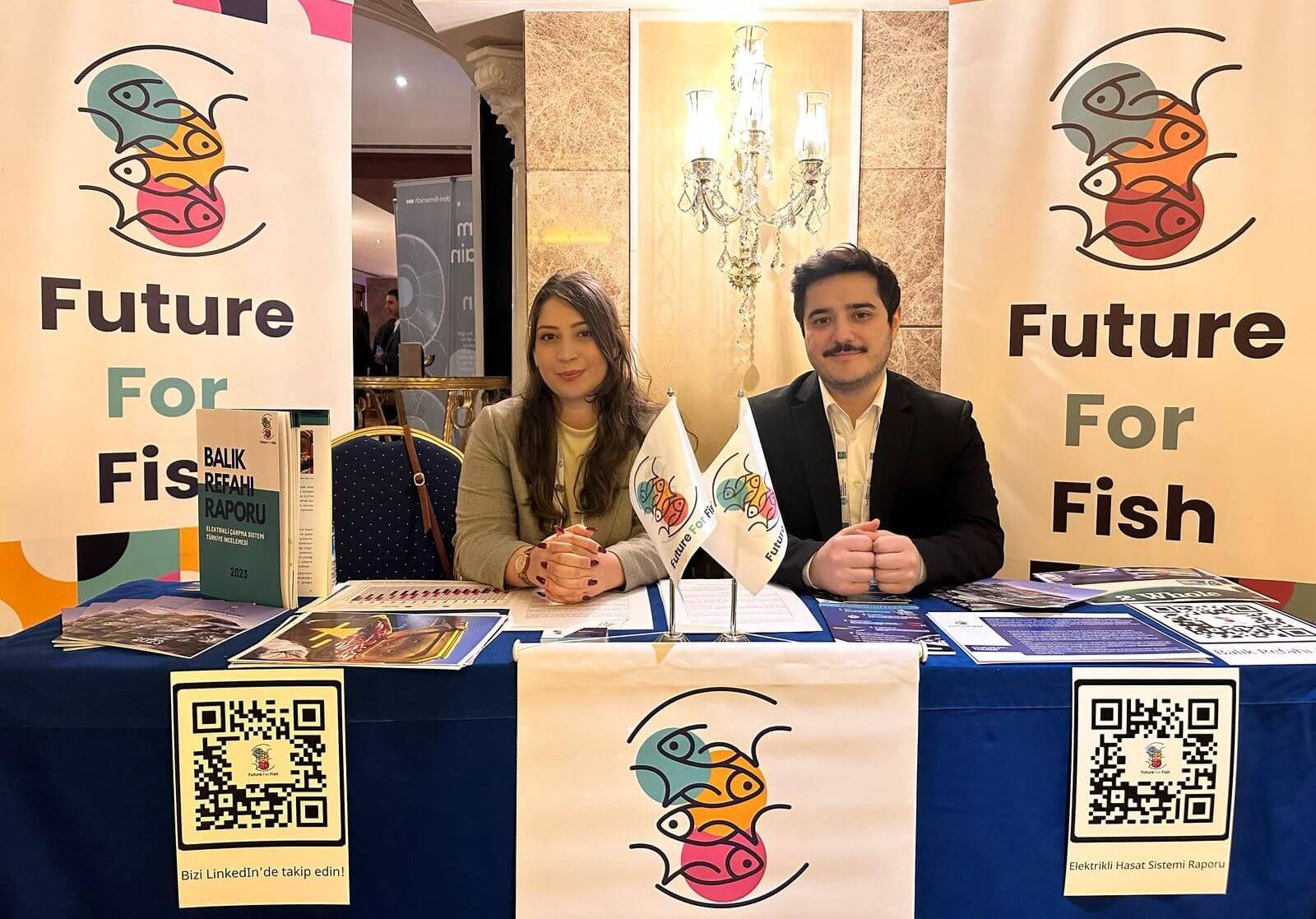
- Kırkfırın (7 locations), Happy Moon’s (70 locations), and Mado (300 locations) published new cage-free commitments.
- The Marmara Hotels and Keyveni catering reported fulfilling their cage-free commitments.
- Retailers CarrefourSA, Migros, Şok, and File launched new price-competitive cage-free barn egg products.
- At the shareholder’s meeting in April, Migros CEO announced that 45% of their egg sales are cage-free.
- The Future For Fish program is coordinating a new research study on the effectiveness of electrical stunning for sea bass and sea bream, scheduled for September.
Dansk Vegetarisk Forening
$188,226 grant
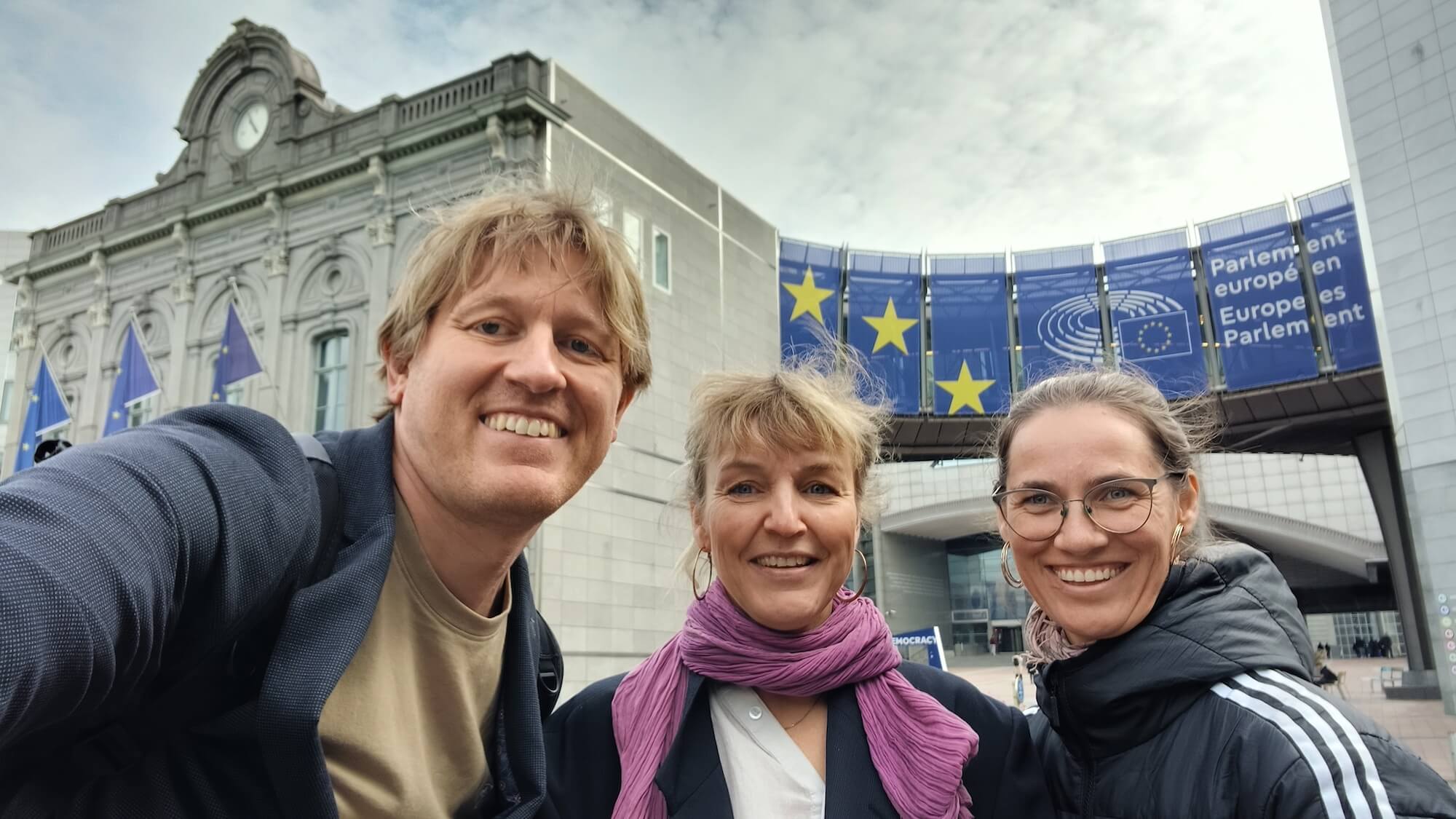
- Dansk Vegetarisk Forening (DVF) has secured the Danish Government and the EU Presidency as partners of their initiative Plant Food Summit—an international policy summit in Copenhagen on October 20-21, 2025 for 500 invited stakeholders from across Europe. Many government officials and farmers’ organizations have already registered. The summit aims to inspire what plant-based policy initiatives can look like in practice and pave the way for an EU Action Plan for Plant-Based Foods and its subsequent government funding.
- DVF has launched the initiative Danish Plant-Based Diplomacy, supported by several farmers’ associations and other mainstream stakeholders. While the initiative is currently targeting European countries, the ambition over time is to expand it beyond the EU.
- DVF has initiated long-term work to direct some Global North government development and climate funding towards organizations in the Global South working on plant-based initiatives. Initial steps included meetings with stakeholders in Denmark and internationally, and becoming an official partner of Denmark’s Pavilion at COP30. It also includes an event hosted by the Danish Embassy in Brasília ahead of COP30, targeting Brazilian politicians and stakeholders to encourage Brazil and COP30 leadership to consider prioritizing more funding for plant-based foods. DVF started a Knowledge Network for Plant-Based Nutrition, facilitated by four health professionals with expertise in plant-based nutrition, with the first 100 health professionals joining within one month. The aim is 1,000 members. The network will create newsletters, webinars, network events, podcasts and guides for professionals and patients.
- DVF has increased its fundraising work to get recurring individual donors to give more, strengthening DVF’s long-term financial health. Initial results are $25,000 USD annually, which is expected to rise to $75,000 USD in annual recurring value by the end of the year.
Faunalytics
$179,263 grant
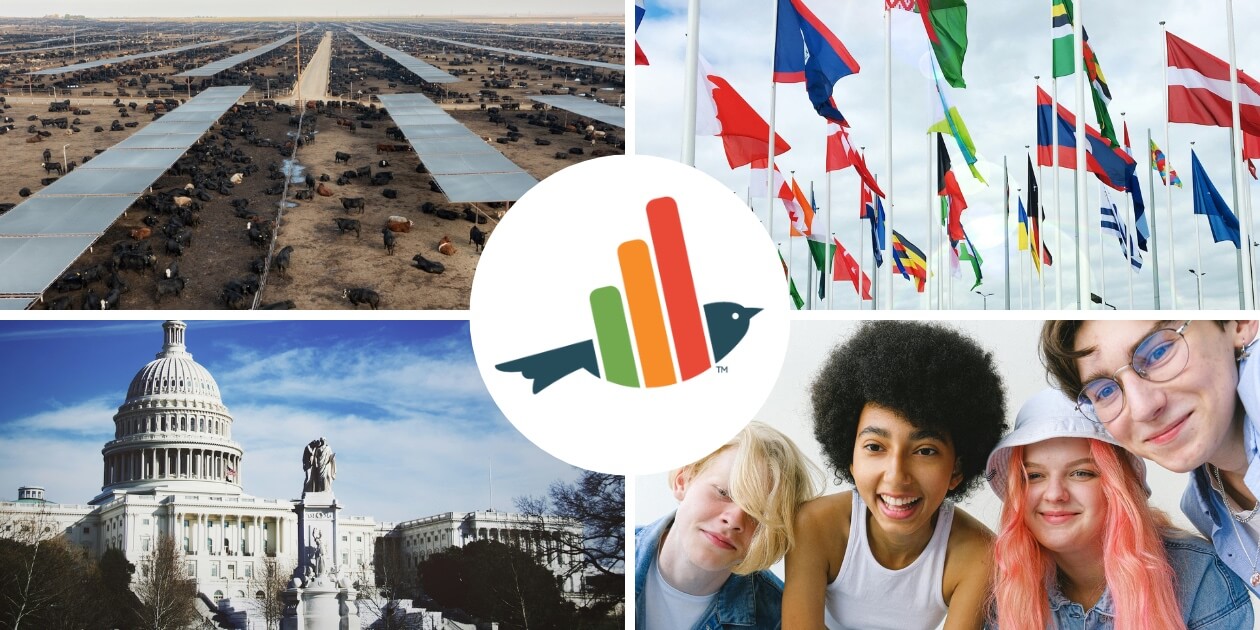
Faunalytics has produced the following research studies, analyses, and data visualizations (so far!) this year:
- Case Study of Food System Education and Students’ Subsequent Impact: Insights into the impact of a food system education program on students’ careers, educational choices, advocacy, and perspectives regarding meat consumption.
- Leadership Turnover In The Animal Advocacy Movement: Why former Executive Directors of animal organizations left their positions and what boards can do to retain leaders.
- Exploring Gen Z’s Attitudes Towards Animals And The Environment: Looking across the U.S., China, Indonesia, and Thailand, this study examines Gen Z’s attitudes, motivations, career considerations, and barriers to action.
- The Economic Impacts Of A Plant-Based Transition: This study examines two hypothetical growth scenarios and outcomes of a shift toward large-scale plant-based meat consumption, as well as its economic impact on the U.S.
- Effective Communication With Political Staffers: A framework for how animal advocates can most effectively communicate with political staffers to advance animal protection policies.
- Global Slaughter Statistics & Charts: New analysis and visualization of trends in animal slaughter.
- What Don’t More Advocates Talk About Ducks? This blog highlights the lack of advocacy for the second most slaughtered land animal on the planet.
- Big Ag, Big Bucks: How USDA subsidies and grants feed market inequality and political influence.
- How To Message Plant-Based Diets And Products In Southeast Asia: In partnership with Good Growth Co., region-specific messaging frameworks that resonate with consumers considering plant-based options.
- Cross-Movement Collaboration For Farmed Animal Advocates In Southeast Asia: Opportunities for coalition-building and resource sharing between animal advocacy organizations and other social justice movements.
- Tactics In Practice: The research behind what makes for effective interventions, with new editions on vegan challenges and protests and demonstrations.
- 25 Years of Informing Animal Advocacy: Faunalytics celebrated their 25th anniversary!
Legal Impact for Chickens
$80,668 grant
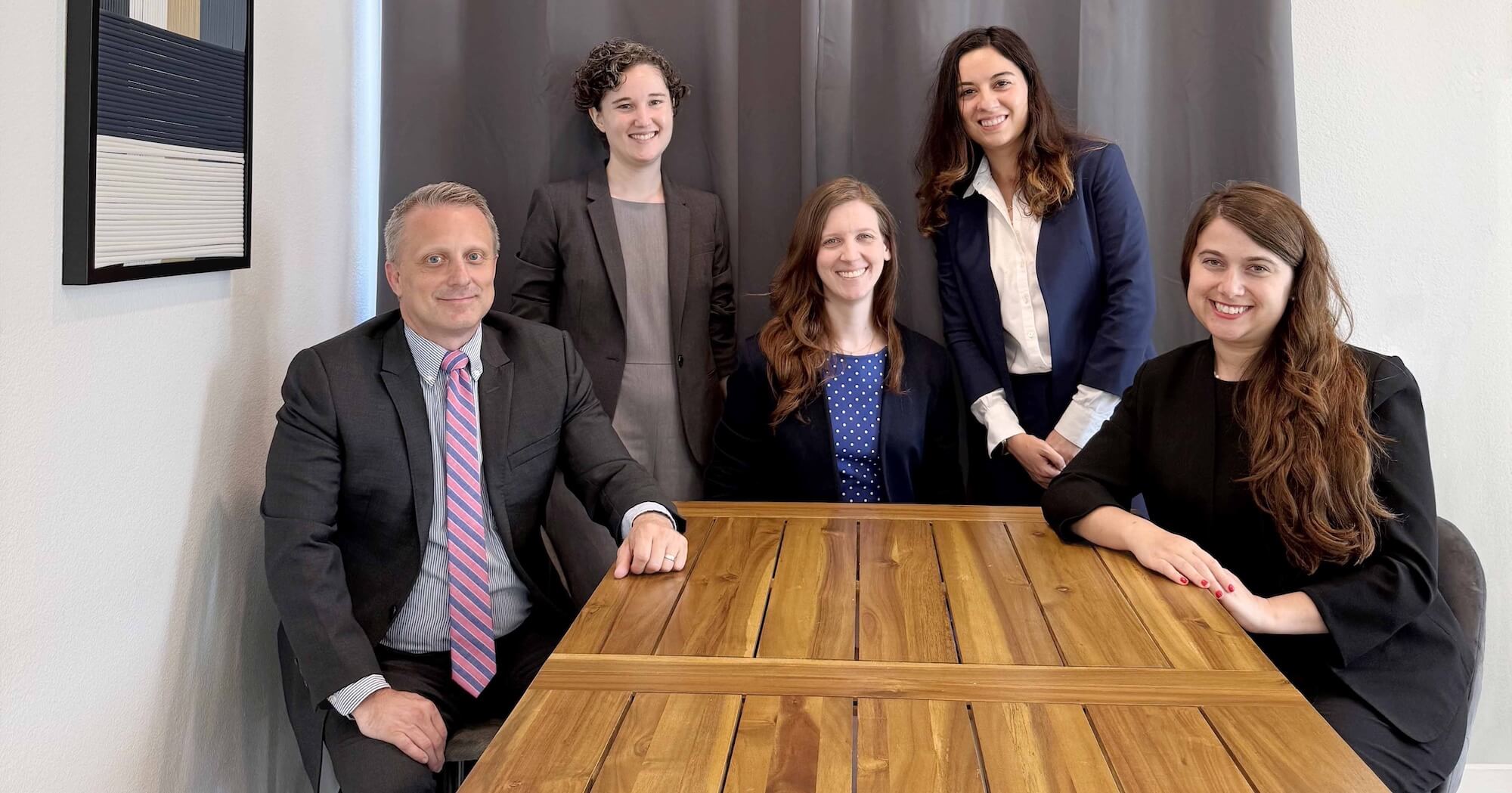
- Legal Impact for Chickens (LIC) achieved a major victory by successfully proving in court that SPCAs can sue to stop agricultural cruelty. A California court ruled that LIC’s lawsuit against Alexandre Family Farm should be allowed to proceed. The lawsuit alleges that Alexandre violated California animal protection laws by pouring salt into cows’ eyes, dragging immobile animals across concrete, starving cattle, and more. The eight-page ruling acknowledged LIC’s power, as a California society for the prevention of cruelty to animals (SPCA), to prevent cruelty through civil litigation.
- LIC also successfully settled a false advertising lawsuit on behalf of its client Animal Outlook. The food known as “foie gras” comes from dangerously force-feeding a duck or a goose. The lawsuit argued that a DC butcher shop was deceptively advertising foie gras as humane. As part of the settlement, the defendant agreed to stop selling foie gras.
- LIC petitioned the North Carolina Supreme Court to hear LIC’s animal cruelty lawsuit against KFC-supplier Case Farms.
- LIC submitted testimony in favor of a Maryland bill to ban keeping egg-laying hens in cages or selling eggs from caged hens in the states, and a comment urging the Arizona Department of Agriculture not to push back the implementation deadline for Arizona’s cage-free bill.
- LIC filed a complaint against Perdue with the Federal Motor Carrier Safety Administration after a retired police officer found chickens strewn about the road for several miles.
- LIC staff spoke about using the law to protect farmed animals at three conferences, in five universities, and on two podcasts.
- LIC hired a new supervising attorney, Drew Givens. Drew is an Army veteran and a former prosecutor. With over a decade of experience in criminal law, Drew provides valuable insight on how LIC can enforce animal protection laws in the agricultural industry.
New Roots Institute
$170,300 grant
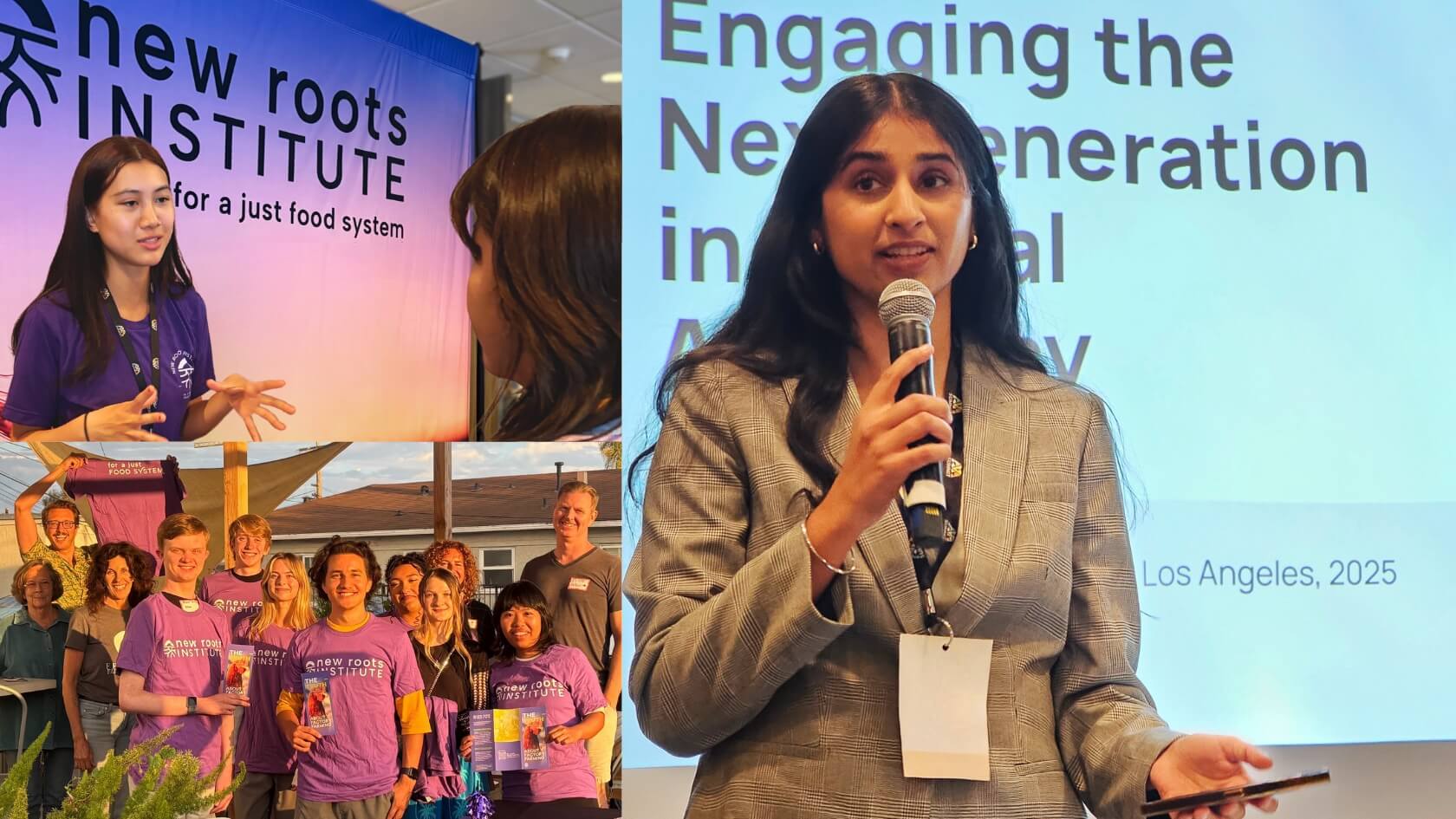
New Roots Institute has made a pivotal strategic shift to maximize cost-effectiveness and scalability of student outreach. Over the past six months they’ve undertaken the following work:
- Breakthrough Research → Higher-Leverage Strategy
Organizational research found that embedding a New Roots Institute fellow within a school community yields 23 times more impact than a single educator-led lesson. This evidence drove a shift toward higher-leverage, more durable interventions. The transition is supported by a new Research & Design Department, ensuring all strategic decisions remain rigorously data-driven. Learn more about the theory of change here.
- High-Multiplier Interventions in Action
During the Academic Year Fellowship, fellows led campaigns that directly engaged 20,000+ people and reached over 1 million through media coverage. These campaigns targeted high-priority cause areas with outsized potential for long-term systemic change, such as institutional plant-based initiatives, legislative advocacy for animal welfare, and educational outreach. Examples include:
- Counterfactual Impact Through a Unique Talent Pipeline
As of June, New Roots alumni are working, volunteering, and interning at 394 organizations in 459 roles, contributing 27,000+ hours in Q4 alone to efforts combating factory farming. This demonstrates substantial counterfactual impact beyond participation in New Roots Institute’s leadership development programs that, in many cases, would not have happened without the training, network, and support.
Shrimp Welfare Project
$215,116 grant
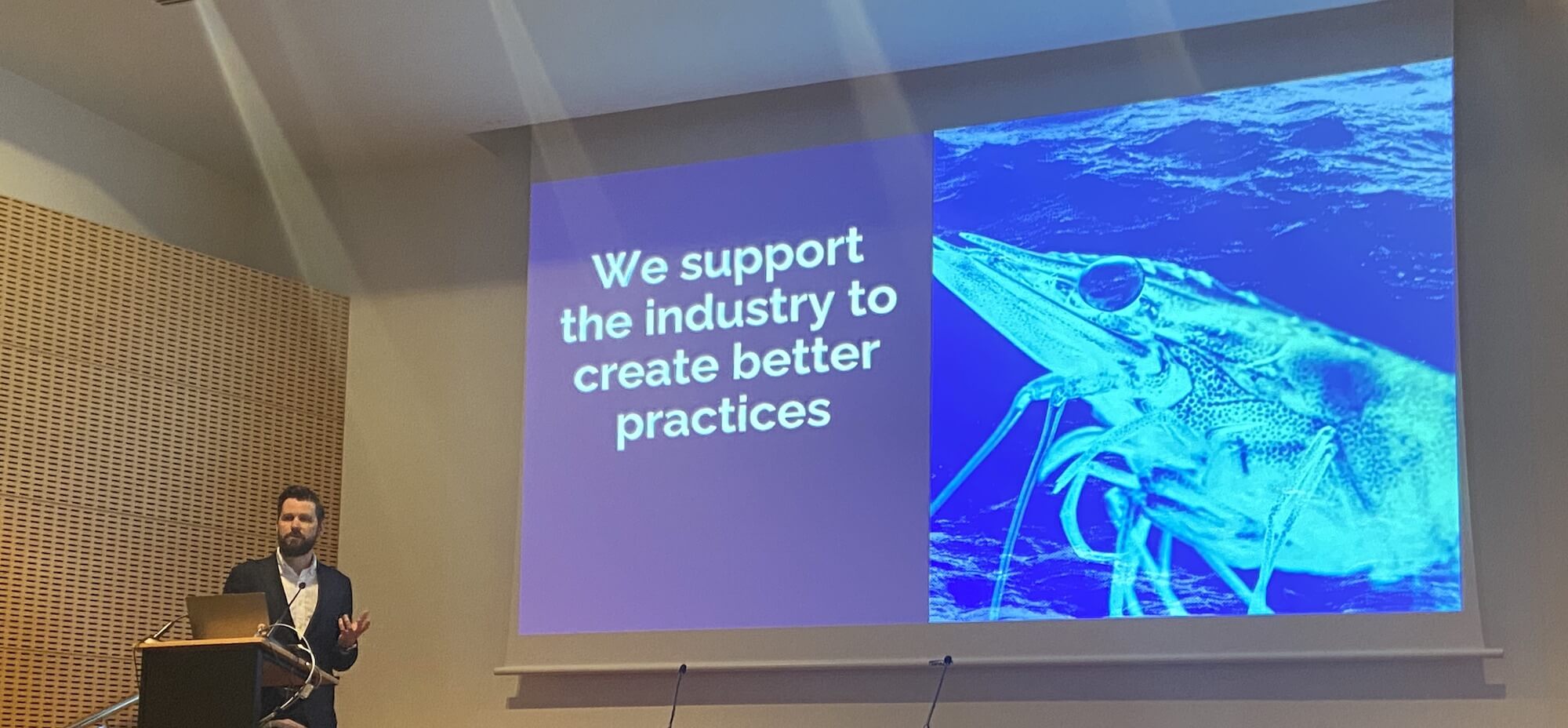
Corporate Engagement:
- Shrimp Welfare Project partnered with 4 new producers through their Humane Slaughter Initiative. They’ve signed a total of 21 agreements to provide free electrical stunners, rendering shrimps unconscious during harvest.
- These new partnerships will improve the lives of an additional ~757 million shrimps per year, bringing the total number of shrimps helped annually to ~4 billion.
- Four major UK retailers — Co-op, Iceland, Morrisons, and Waitrose — published shrimp welfare policies following discussions and partnership with Shrimp Welfare Project. In total, 9 supermarket chains have committed to humane slaughter and banning eyestalk ablation.
Farmer Support:
- Their Sustainable Shrimp Farmers of India initiative improved conditions for ~36 million shrimps annually across the first 100 acres of its sludge removal program, which improves water quality and lowers stocking densities. So far this year, an additional 55 acres have been completed, which is expected to help ~19.8 million shrimps.
- While these numbers are smaller than the HSI numbers, the depth of impact is significant—some external estimates suggest that the per-shrimp impact is ~20x greater than that of HSI, as it addresses chronic suffering throughout shrimps’ lives. This dual approach allows Shrimp Welfare Project to tackle both acute and long-term suffering in shrimp farming.
Outreach:
- Shrimp welfare landed a prime time spotlight on The Daily Show, when Co-Founder and Board Chair Andrés Jiménez Zorrilla was interviewed by comedian Ronny Chieng for a hilarious yet surprisingly insightful segment.
- Shrimp Welfare Project attended several conferences, including the Barcelona Seafood Expo—where Chief Programmes Officer Krzysztof Wojtas spoke on a shrimp welfare panel—and EAG London, where The Daily Show segment was featured during the opening remarks.
- Research & Policy Lead Shannon Davis co-authored a book with Ren Ryba, Yip Fai Tse, and Peter Singer, “Shrimp and Prawn Welfare in the Wild-Caught Fishing Industry,” which is scheduled to be published on September 26, 2025.
Sinergia Animal
$161,337 grant
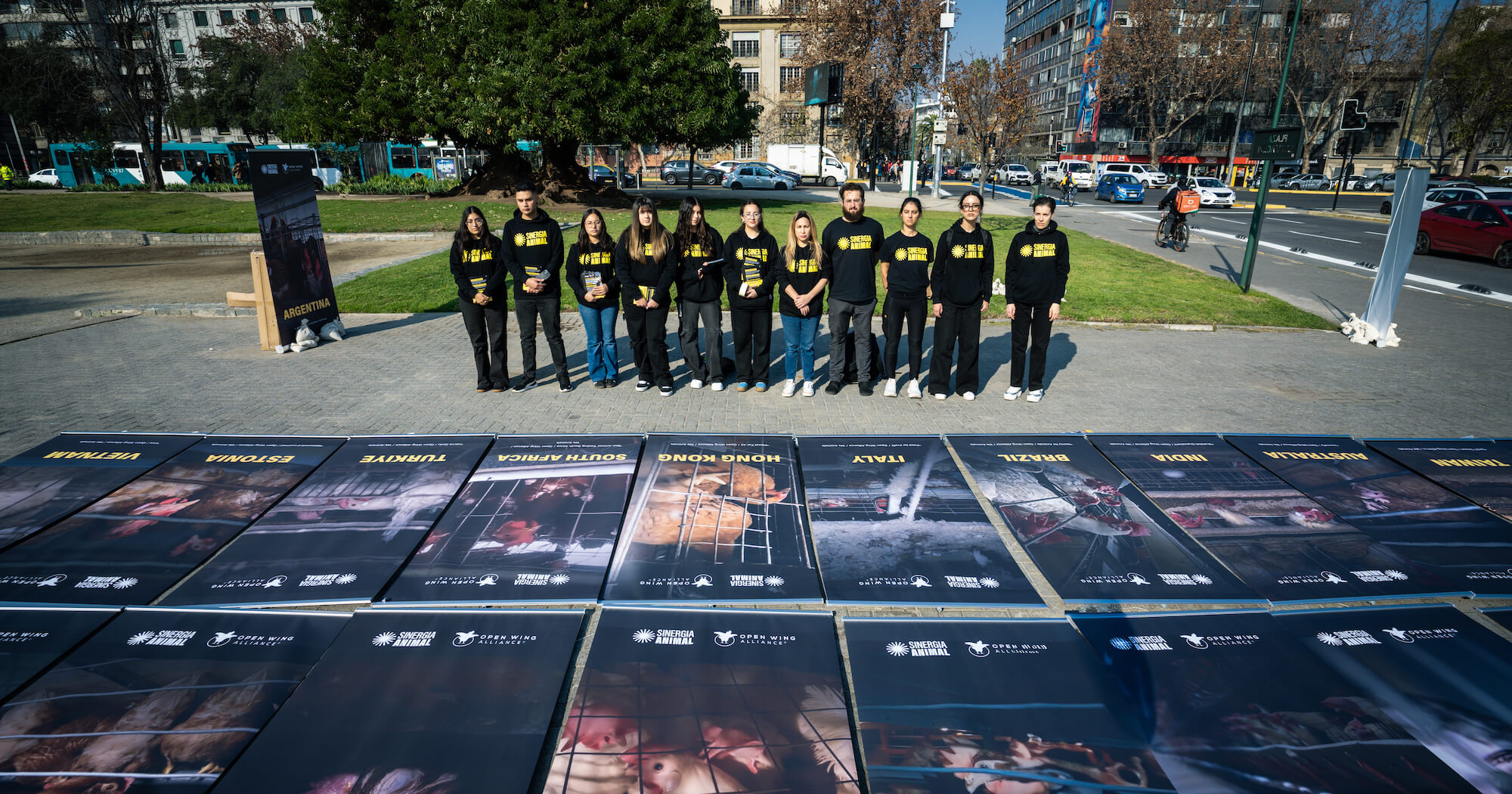
Between February and July 2025, Sinergia Animal advanced high-impact programs that improve the lives of farmed animals worldwide:
- Corporate Commitments: Sinergia Animal helped secure 15 new corporate commitments to improve animal welfare. Highlights include a global cage-free egg commitment from Juan Valdez (a Colombian coffee chain with 630 stores worldwide) for 2030, and a cage-free egg policy from ONYX Hospitality Group across four Asian countries.. After a six-month campaign in Brazil, Aurora Coop committed to a system that confirms pregnancy before implantation in new units, meaning that all three major pork producers (BRF, JBS, and Aurora) in the country will phase out gestation crates for breeding sows upon pregnancy confirmation in new farms.
- Institutional Diet Change: Through its Nourishing Tomorrow program in Argentina, Sinergia secured agreements to implement plant-based kiosks in 28 municipal schools (serving 10,000 children) and provide daily plant-based meals to 6,714 children under three. This achievement has the potential to replace animal products with plant-based alternatives in over 524,000 meals annually.
- Global Advocacy: As part of the Global Day of Action, Sinergia and partner groups urged the World Bank Group to stop financing factory farming via demonstrations at the Bank’s offices in several countries. In coalition with the Stop Financing Factory Farming campaign, Sinergia helped block a €40 million investment by the European Bank for Reconstruction and Development into fast-food chains like Burger King and Popeyes, a significant victory in the fight to ensure public funds with low interest rates are not used to expand factory farming.
- Investigations & Public Awareness: Sinergia Animal released impactful investigations, including exposing misleading caged eggs sold as “Happy Eggs” in Argentina, and documenting shocking conditions at an egg supplier of Productos Ramo, Colombia’s 4th largest manufacturer of industrialized baked products. In Brazil, Sinergia’s team marked one year since its Danone dairy investigation was released with street protests.
- Movement Building: Sinergia continued to expand its communities in Latin America and Southeast Asia, forming and empowering a community of over 500 new activists, to strengthen the reach and impact of its campaigns.
The Humane League
$233,042 grant
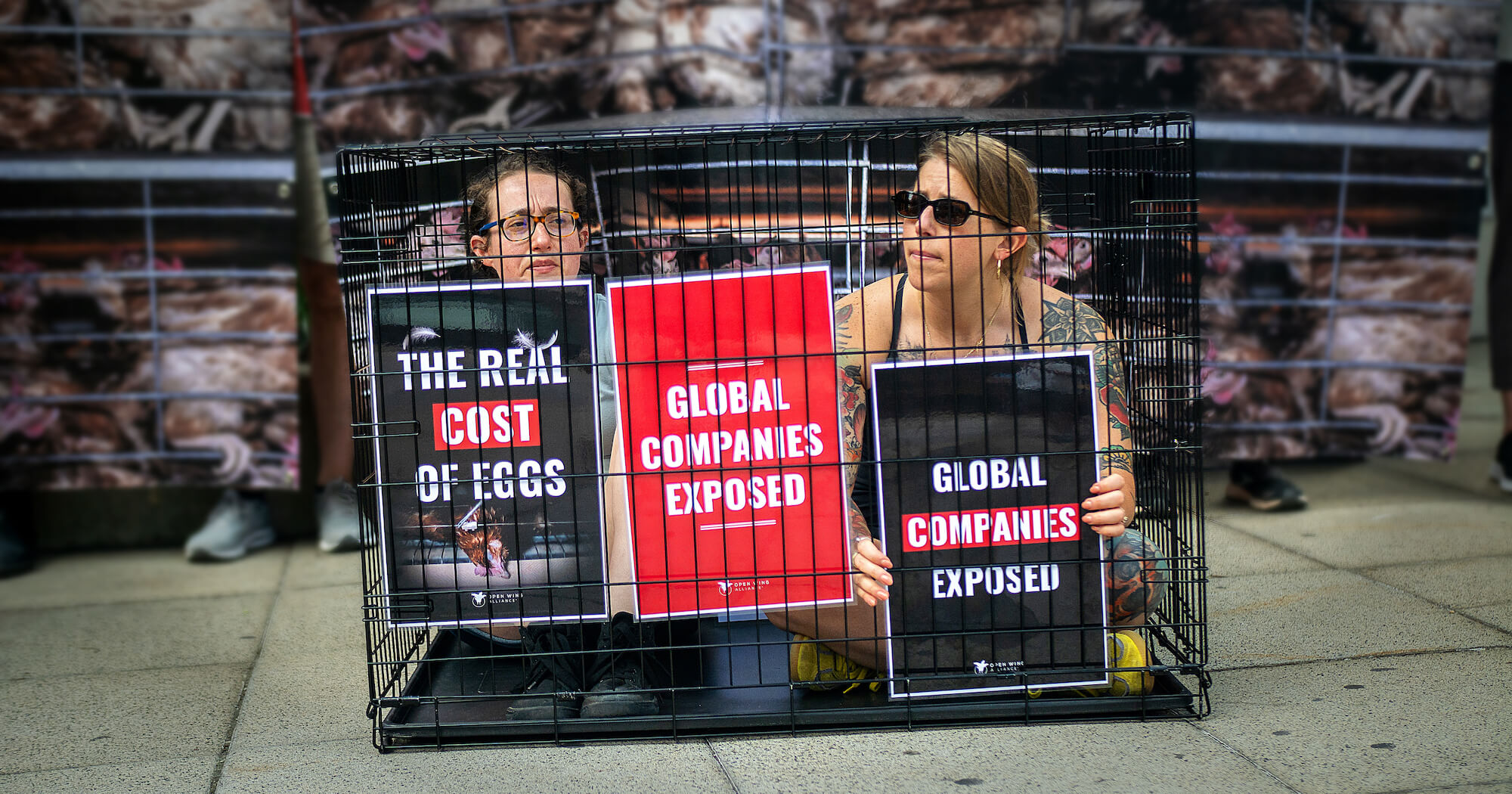
- The Humane League (THL) is laser-focused on holding companies accountable for completing their transition to cage-free housing systems by the end of 2025. Between February-July, public accountability reports like THL’s 2025 eggposé and hard-hitting campaigns pressured 87 companies to report on the progress they’re making towards their commitments, revealing an additional 4.9 million hens that were spared from cages last year.
- As of July, in the US, over 45% of the egg-laying flock lives free from cages for the first time—nearly 100 million more hens than when THL began their work a decade ago.
- The Open Wing Alliance (OWA) awarded $1,689,461 in grants to 23 organizations across 20 countries and administered $858,018 in second-year 2024 grants—over 25 times more grant funding than OWA’s first granting year in 2017.
- The OWA published the European Chicken Commitment (ECC) Progress Report. They found that more than 260 million chickens raised for meat are spared from some of the worst and most widespread abuses on factory farms, and nearly 400 corporate commitments will spare 1.3 billion chickens once fulfilled.
- The OWA hosted dynamic campaign accelerator workshops in Africa, Asia, and Latin America, deepening THL’s global impact and strengthening alliances.
- In June, THL launched The World’s Largest Egg Investigation with investigators in 37 countries. In response, 8 companies reported progress toward their cage-free goals and 3 fulfilled their commitments. An egg farm housing over 46,000 hens in Bulgaria permanently shut down after an OWA member group brought investigation footage to local authorities.
- THL joined a coalition, led by the Humane World for Animals, as an intervenor in a new lawsuit attempting to overturn California’s Proposition 12, filed by the US Department of Justice. THL is also mobilizing supporters to contact Congress to keep harmful language out of the Farm Bill.
Wild Animal Initiative
$242,005 grant
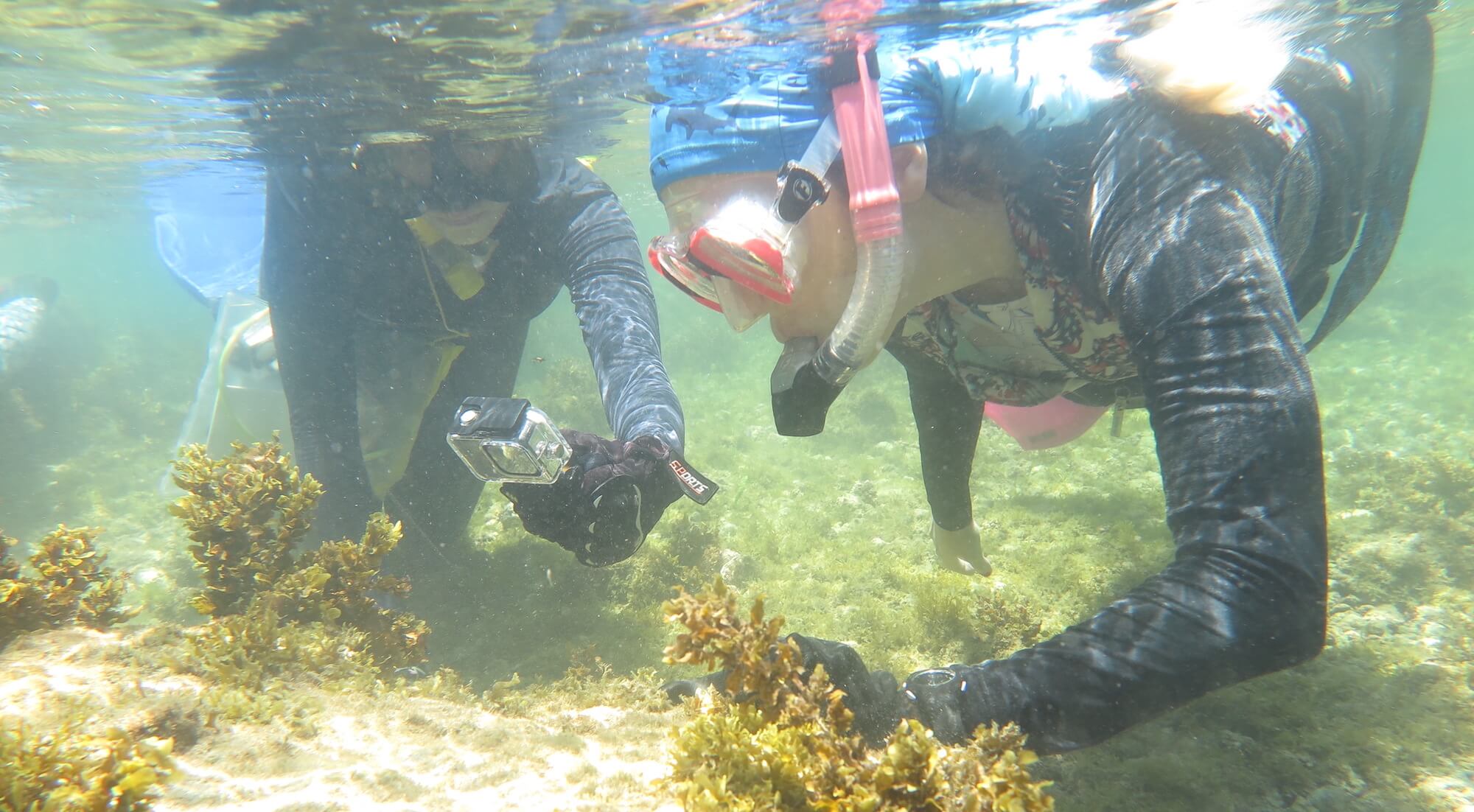
- Wild Animal Initiative presented at high-impact conferences, including:
- AI for Animals and AI, Animals & Digital Mind, exploring intersections between AI and wild animal welfare.
- International Congress for Conservation Biology, promoting welfare-integrated conservation and management.
- Seminars were held at UC Davis and UCLA, where researchers presented core concepts of wild animal welfare science and discussed case studies.
- The NYU Wild Animal Welfare Summit, strengthening collaboration across academia.
- Wrapped up our five-part seminar series on Wild Animal Lives Through a Welfare Lens, co-delivered with the Royal Veterinary College and the Institute of Zoology as part of their MSc in Wild Animal Biology.
- Hosted a Europe-based grantee meetup and virtual grantee coffee hours to build community and share methodological insights.
- Announced our grantees for the most recent Call for Proposals with priority topics such as welfare indicators, interspecies interactions, juvenile welfare, and fish and invertebrate welfare.
- Advanced key research projects, including
- The EU-funded COST Action ‘LIFT’ project, which identifies long-term welfare biomarkers (e.g., oxidative stress) and promotes academic collaboration.
- A review of veterinarians’ roles in wild animal research and training 14 UniLaSalle students in wild animal welfare methods.
- Their in-house field study on house sparrows, validating field welfare indicators in sparrows and assessing urban environmental impacts.
- A review on injuries and deformities in wild fish as potential welfare indicators, leading to an academic paper on the subject.
- A forthcoming research agenda on insecticides to guide future insect welfare studies.
- A commentary encouraging behavioral scientists to integrate affective states into study design for more ethical, reliable data.
- Published several new blog posts, including a spotlight on Research Manager Michaël Beaulieu, reflections on 2025 Spring internships, an expanded Core Concepts series, and a piece on a grantee’s research focused on developing near-term welfare interventions.
We hope that you are inspired by these achievements! If you want to fuel more positive progress for neglected animals, please support ACE’s Recommended Charity Fund and share this update with a friend. Your action today will help reduce animal suffering tomorrow. Thank you!
Support Our Recommended Charities
ACE is dedicated to creating a world where all animals can thrive, regardless of their species. We take the
guesswork out of supporting animal advocacy by directing funds toward the most impactful charities and programs,
based on evidence and research.
167
Recipients working on promising projects
42
Countries across six continents.
$68M
Donations within the animal advocacy movement.
$47,000,000+
in donations already made to our recommended charities between January 2019 and March 2024
Looking to make your first donation? We’re happy to help
Learn More
Donate now


